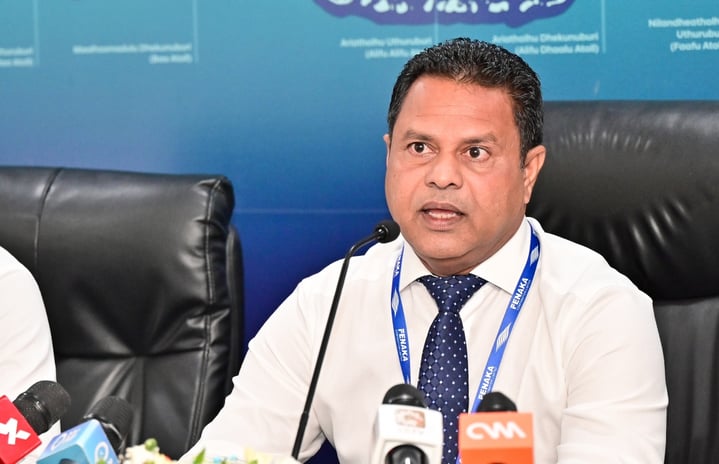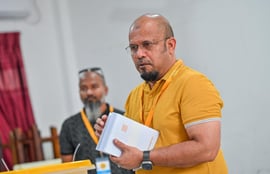Prosecutor General's (PG) Office has requested the Criminal Court not to release the passport of former Managing Director of Fenaka Corporation, Ahmed Saeed based off of the intelligence reports received from the police regarding his case.
Saeed’s passport has been withheld since October 9, 2023, as he awaits trial. Although PG Office had earlier allowed a 15-day travel document for medical reasons in May this year, it has now reversed its stance based on new intelligence reports. PG Office media official Ahmed Shafiu confirmed the update to Mihaaru.
Saeed, who also faced corruption allegations during former President Ibrahim Mohamed Solih’s administration, he was not tried under the previous government. However, several complaints including from Fenaka Corporation employees had been filed with the Anti-Corruption Commission (ACC).
Following the change in government, the new leadership at Fenaka reviewed several internal issues and submitted multiple corruption cases to the ACC. Many of these involve claims that the company favored specific parties or groups during project awarding and implementation.
According to the report, 25 out of 60 in-house construction projects including powerhouses, power stations, and office buildings have been referred to ACC. Most of these projects remain incomplete, with many not even 50 percent completed. In most cases, Bills of Quantities (BOQs) based on current market prices were missing.
The total funds allocated to these 25 projects during the Solih administration reportedly exceeded MVR 508 million. According to current Fenaka Managing Director Muaz Mohamed Rasheed, billions more will be needed to complete them.
He added that by the end of President Solih’s term, Fenaka had become one of the most corrupt state-owned companies in terms of project mismanagement and financial misconduct.




